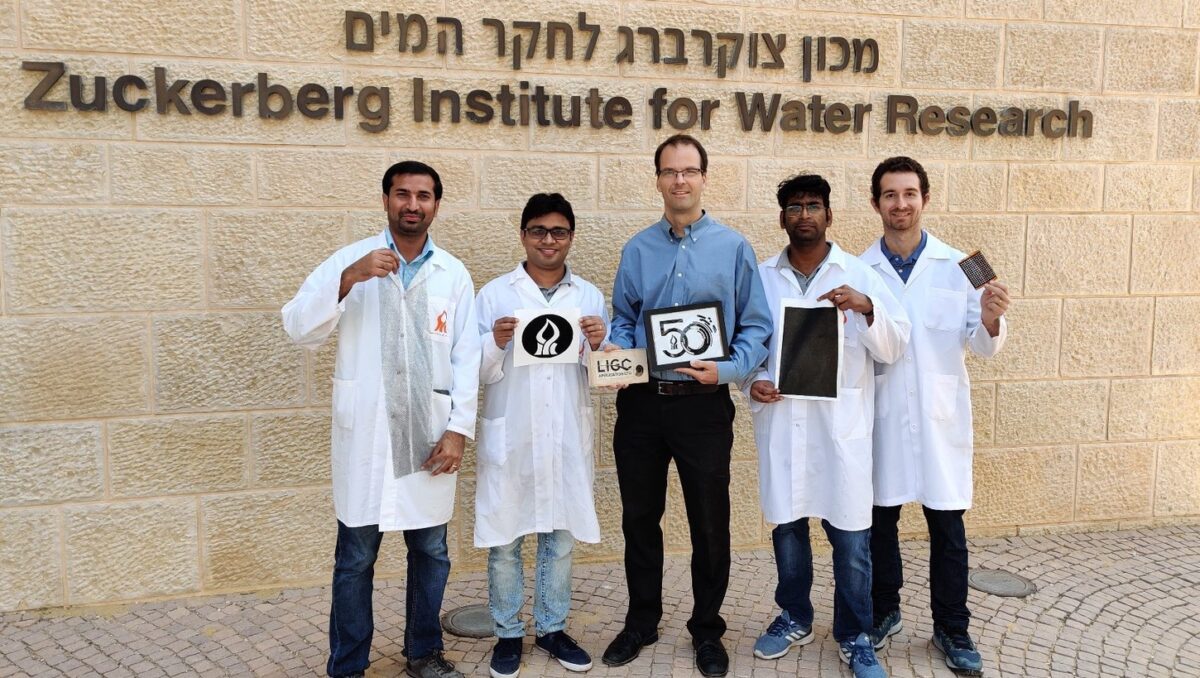Technology developed by researchers in Israel and the US to filter particles from the air is being commercialized for filtration systems that filter out airborne Covid-19 particles.
The technology is based on laser-induced graphene, currently used in water-filtration systems to eliminate viruses and bacteria. It is being developed by researchers at Ben-Gurion University of the Negev and Rice University in Houston, Texas.
“For the past five years, our lab at the BGU Zuckerberg Institute for Water Research has focused on the development of LIG, specifically in antimicrobial filtration and environmental applications,” says researcher Chris Arnusch.
“We are excited to be commercializing our technology in a number of air-filtration products for Covid-19 and other specialized filtration applications.”
The LIG air filters damage and destroy organic particles such as viruses, bacteria and mold spores at micron and sub-micron level as they pass through a microscopic network of porous graphene. This, the researchers say, is more efficient compared to the active carbon filters, UV-C and fiber HEPA filters widely used in private and public spaces.
“To understand the technology, imagine the porous graphene is an electric fence that functions like a mosquito zapper at the submicron level,” explains Yehuda Borenstein, cofounder and CEO of LIGC, the company commercializing the technology. “When an airborne bacteria or virus touches the graphene surface, it is shocked at a low voltage and currents that are safe for use.”
“In the absence of better filtration technology, the indoor spaces where we used to spend most of our ‘normal’ life – schools, stores and workplaces – due to Covid-19 present a real risk,” he adds.“This technology will provide cleaner and more breathable air with lower energy and maintenance costs and virtually silent sound levels.”
1st published in Israel21c.org

